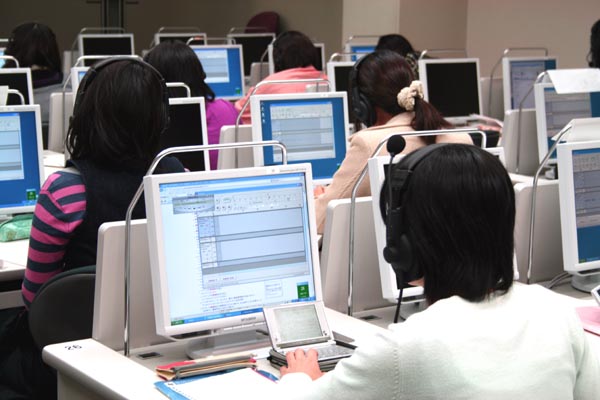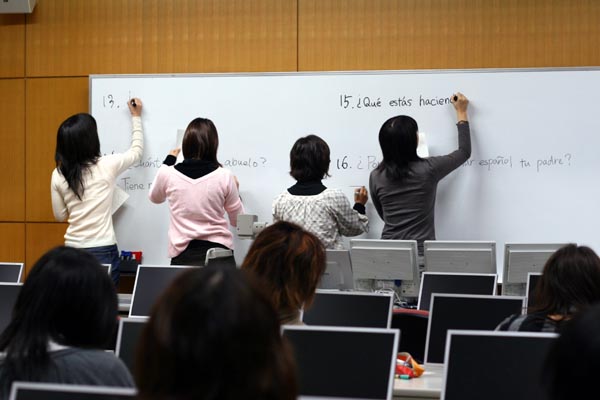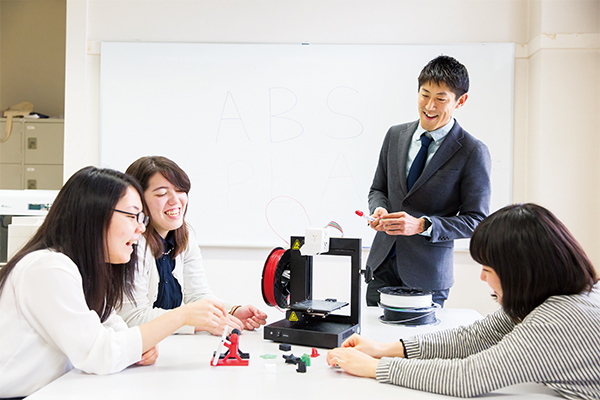Features of Tsuda
General Education
Providing a solid foundation, while fostering critical thinking and creativity
We offer students several classes as an introduction to various disciplines and as a general academic foundation. The core subjects are in the human sciences, the social sciences and the natural sciences. Subjects in the humanities include philosophy, psychology and literature. Subjects in the social sciences courses include sociology, political science, and law. Those in the natural sciences include computer science, biology, and chemistry. Through this general education, students gain exposure to a wealth of knowledge in a wide variety of fields.
At Tsuda University, we have a special lecture series entitled “Interdisciplinary Study of Contemporary Problems.” Lectures are given by Tsuda University faculty members and speakers from off campus—usually academics, writers, and business professionals. The interdisciplinary nature of this lecture series is truly unique. By taking advantage of this wide offering of general classes, students are usually able to figure out their future goals, and upon the completion of these classes, students are in a better position to choose their elective courses.
Foreign Language Education
A prototype for intensive English-language training

At Tsuda, students in every department are required to study English, and acquire English skills essential to their various disciplines. We emphasize the four essential language skills: listening, speaking, reading, and writing. We have worked hard through the years to develop interesting teaching materials that help students to improve their language skills and simultaneously fuel their desire to study further. Consequently, in fiscal 2004, the Ministry of Education and Science, as part of its Program to Support University Education, cited our language education program as exemplifying “Distinctive Good Practices.” The ministry examines the innovations being introduced by universities around the country to improve their curricula, and then selects the most distinctive and effective ones. The ministry then plans to make this information widely available to the public so that it may be used for reference in the development of higher education curricula. We are pleased that our program has been selected, and will continue our efforts to develop interesting and effective educational materials and programs.
Tsuda offers eight languages including English

In addition to English, we offer classes in French, German, Spanish, Russian, Chinese, and Korean, as well as Japanese for foreign students. In the first year, students are required to master basic grammar and do exercises. In the second year, the emphasis is on reading and exercises. In the third and fourth years, students may choose from among several upper-level language courses. The Department of English, the Department of International and Cultural Studies and the Department of International Cooperation and Multicultural Studies require students to study a second foreign language.
Education in a Small Class Environment
Interactive classes in a convivial atmosphere where individuality is respected

Tsuda University has been conducting education in small classes since its foundation in 1900. There are compulsory small-group seminars or academic reading classes for all students throughout the four undergraduate years. In these seminars, students develop the ability to think about issues from various perspectives and express their thoughts.
A small class setting offers students the advantage of getting careful instruction from teachers in a convivial atmosphere. Teaching in small classes can closely respond to differences in the personality, ability, and skills of each student, which results in interactive classes that foster independent thinkers and active leaders.